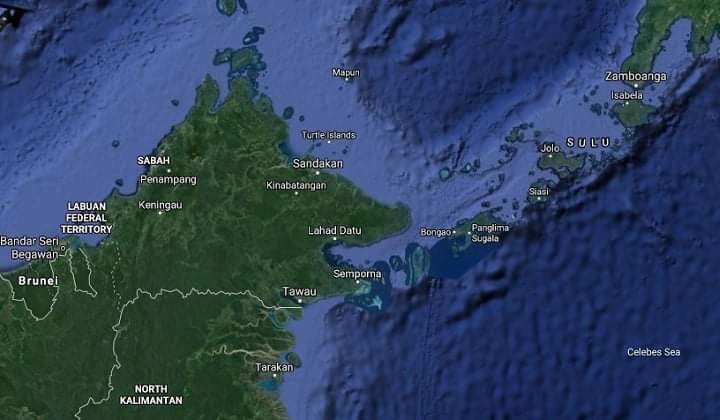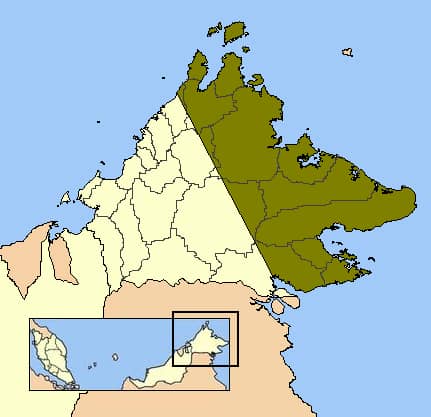No proof Sulu claimants collected previous compensation payments from the Philippines government
Putrajaya may not rush to judgment on Sabah even if it looks like a court somewhere in the world can assist the Sulu heirs to enforce the so-called compensation against Malaysian government assets in the jurisdiction (court’s), in lieu of land ownership in North Borneo.
If Putrajaya Applies to set aside the ex-parte Arbitration decision, or enforcement of compensation, the question that arises in law may be on whether it “must” also in return agree to inter-parte (both parties) negotiations by mediation. In short, give consent for Arbitration to proceed on Sabah and risk untold consequences, if any, for no rhyme or reason. If so, the ex-parte manoeuvre by the Sulu heirs in Paris, on the coveted territory in North Borneo, may have been in hindsight probably strategic, if not ill-advised.
Malaysia, it may be safely said, will not agree to any Arbitration on Sabah. In fact, the question does not arise in law, based on various factors viz. national security, legitimacy, territorial integrity and the right, under international law, to self-determination and sovereignty. In the wake of World War II, which was fought over the controversial existence of 3rd World colonies keeping world markets closed, colonialism was outlawed. It has been defined by international law as a form of criminal enterprise to accumulate capital at the expense of subject people.

Orang Asal
The politics in the Orang Asal (Indigenous) communities in Sabah and Sarawak will also not allow it. Already, the PTI (pendatang tanpa izin or illegal immigrants) have been staying in Sabah for nearly 40 years, in the legal twilight zone, based on “romantic” notions fed by the Sulu “fixation with the Territory in North Borneo”. The Orang Asal are against the Malaysian government providing the PTI with “proof of identity” in law, even non-Malaysian. Under international law, the Malaysian government has a duty to educate the PTI children, but local politics has got in the way.
Agreement In Law
In the court of law, the judge will first look at whether an Agreement is valid in law, unless both sides are prepared to agree it’s “valid” and come up with a “statement of agreed facts” for the way forward. One-sided Arrangements or Unequal Treaties, for example, are not valid in law based on the principle that “no man can sign against himself”.
If an agreement is upheld by the court, i.e. valid in law, the judge, in any case, will not and cannot compel compliance. There’s no such precedence on the matter and it also does not fall under the Doctrine of Binding Precedence. At best, based on Practice Notes and the Rules of the High Court and Subordinate Courts, the court can only offer compensation for any “deliberate breach”. The compensation, in compliance with case directions for case management during case mention, must be quantified by the Claimant party at the Assistant Registrar’s Office. This is just so much clerical work based on due diligence and forensic accounting.
The court will make a final determination on the compensation amount. The court will not be seen as being party to illegalities. The compensation amount can be revised, either upwards or downwards, by the superior court upon Appeal.
History Of Compensation
In the Sulu case, any alleged “breach” by Malaysia on annual compensation payments may have been “unintended” i.e. it was not “deliberate”.
Former Attorney General Tommy Thomas’ take on the issue in his Memoirs, “My Story: Justice in the Wilderness” may not be the whole story. He said in his book, indeed recklessly, that it was a “mistake” that Malaysia stopped compensation payments in 2013. It’s not known whether he may have given ideas inadvertently, perhaps in a moment of temporary insanity, to the Sulu heirs. Former Sabah Chief Minister Yong Teck Lee has raised suspicions in the media on those who may be funding and encouraging the Sulu heirs to pursue the matter in “court”. Video here. Latest, former premier Najib Razak asks for explanation on the letter re the Sulu issue.
The compensation payments were first made by the British North Borneo Chartered Company (BNBCC). It was continued by the British government after World War II when the Colonial Office in London bought North Borneo from the virtually insolvent Company for 1.2 million pounds. The Federal government assumed responsibility for payments after Malaysia Day on 16 Sept 1963. It’s not known why the Sabah government isn’t making the compensation payments to the Sulu heirs.
Arbitration Defined
This commentary and analysis takes its cue from the term Arbitration as defined here and maybe read with reference to the decision — it can’t be called Ruling — in Paris which went against Malaysia on Sabah.
Arbitration isn’t like a court of law. In the latter case, the ruling in fact is based on decisions taken by both sides in Submissions.
Submissions are about looking for the law and pointing it out. The court will find the law and declare it.
In law, the losing party has a right to know why it lost. That facilitates Appeal which can be initiated twice after the court of 1st Instance. For example, if a case began at the High Court in Malaya, or Borneo, it can be taken all the way to the Federal Court.
Arbitration, by the very term, briefly means mediation between parties in dispute on issues in conflict provided that both sides accept the Approach, are present and agree to be bound by any decision. Arbitration isn’t a court of law but mediation although the decision can be seen as binding in law if both sides accept it. Also, the decision of the Arbitrator can be taken to a court of law for Hearing and final determination.
Letter Of The Law
Arbitration certainly cannot be ex-parte i.e. only one side being present. The Sabah Law Society (SLS) may beg to disagree — see here — but makes no mention of “special circumstances”, if any, under the rule of law.
SLS or no SLS, the letter of the law, by itself, isn’t the sum total of the rule of law. Generally, if lawyers in Malaysia are more comfortable with the letter of the law approach only in seeking closure, being probably weak in jurisprudence and the Constitution, it shouldn’t become the court’s burden as well. Law, ultimately the power of language, is about regulating the nature of human relationships under the rule of law.
In the rule of law, the basis of the Constitution, there’s greater emphasis on the spirit of the law, read with the letter of the law.
Again, the letter of the law, by itself, isn’t law at all. It’s dictatorship, there being no democracy and no legitimacy, it’s ruled by Man, tantamount to the law of the jungle.
Law must have source to have jurisdiction, authority and power. Law exists and has always existed, based on common sense, universal values and the principles of natural justice.
Remedies
Still, the Sabah body may be right in a way, but only under normal circumstances, in saying that Malaysia can Apply to set aside the ex-parte decision in Paris on Sabah which may have gone against it, albeit on paper. The jury may still be out on whether any court in the world will assist the Sulu claimants to collect the reported compensation.
In law, mere Declarations by the court are not good enough. The court must offer remedies as well. It’s not good enough for Paris to say that Malaysia must pay the Sulu claimants US$14.9b (RM62.59b) within three months or risk paying interest as well. It’s not known whether the quantum of interest has been specified.
RM5,300 compensation per annum x 10 years i.e. from 2013 to 2022 does not total RM62.59b even with the statutory 8 per cent per annum compound interest added.
It has been reported that the Sulu heirs took the cue for compensation from the considerable oil and gas resources of Sabah. As it will soon become evident, based on the 1878 Deed, 1939 court Ruling, toll collection, the concept of Territory and sovereignty, the oil and gas resources of Sabah don’t enter the picture on compensation for the Sulu heirs. – New Malaysia Herald
Part 2 follows tomorrow.
About the writer: Longtime Borneo watcher Joe Fernandez keeps a keen eye on Malaysia as a legal scholar (jurist). He was formerly Chief Editor of Sabah Times. He’s not to be mistaken for a namesake previously with Daily Express. References to his blog articles can be found here.
The points expressed in this article are that of the writer’s and do not necessarily reflect the stand of the New Malaysia Herald.

Longtime Borneo watcher Joe Fernandez has been writing for many years on both sides of the Southeast Asia Sea. He should not be mistaken for a namesake formerly with the Daily Express in Kota Kinabalu. JF keeps a Blog under FernzTheGreat on the nature of human relationships.

Facebook Comments